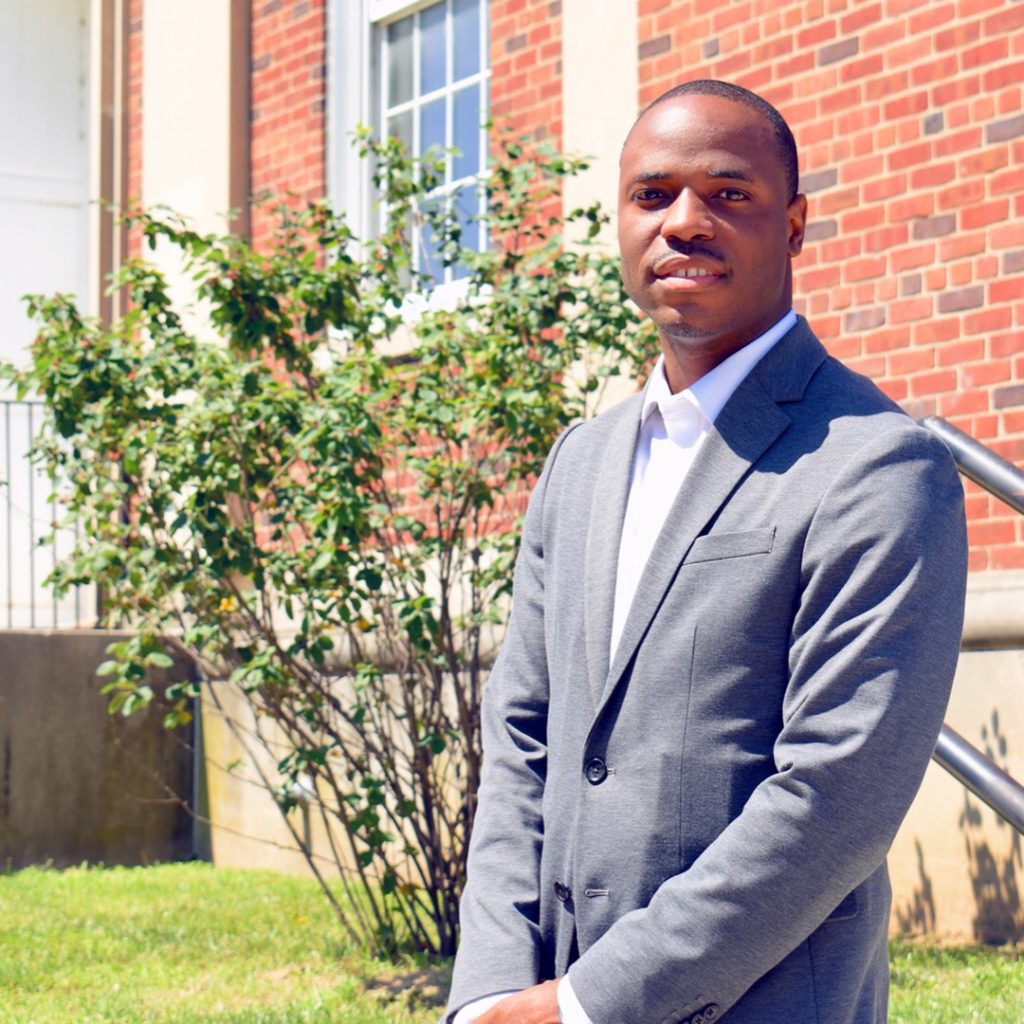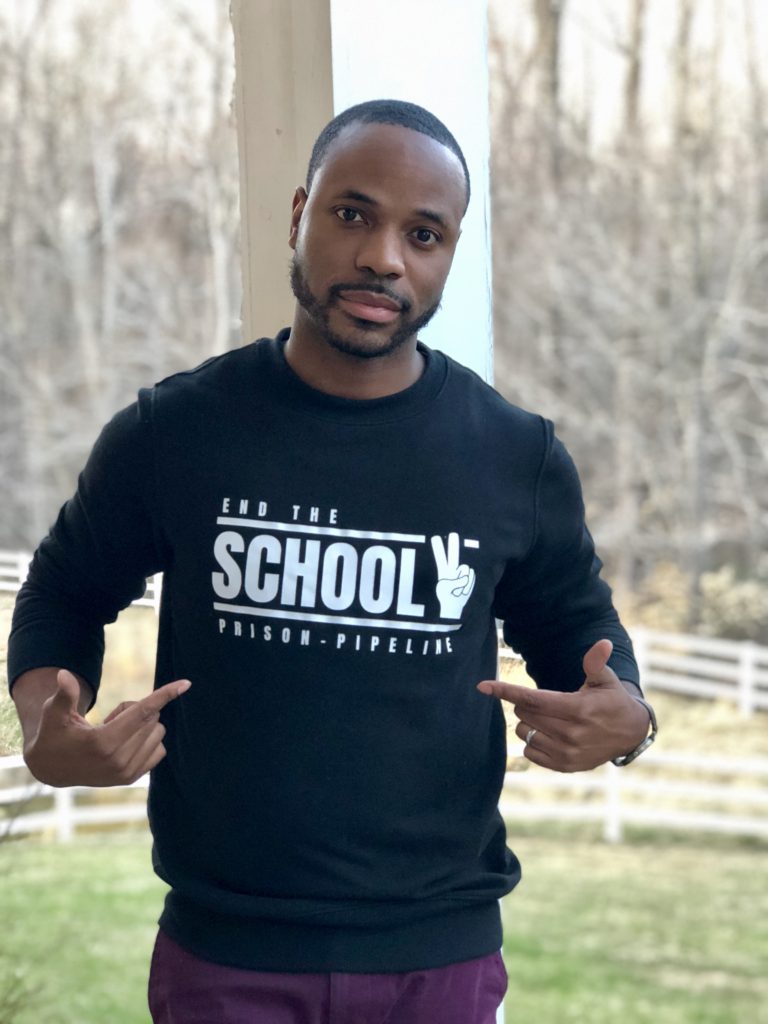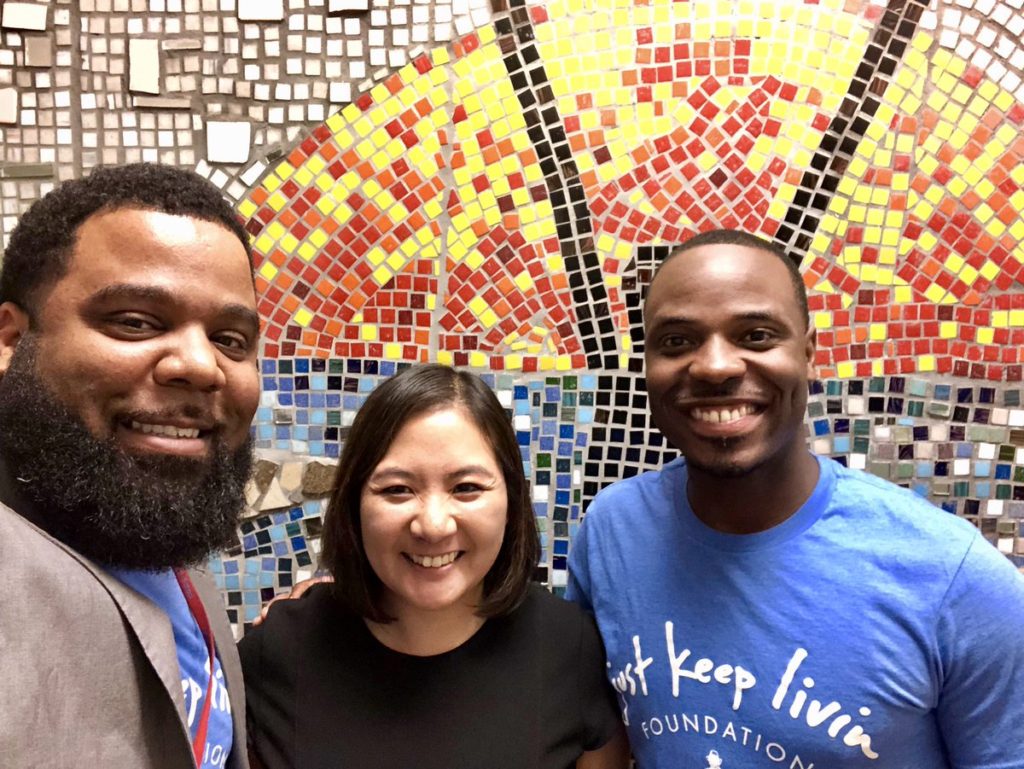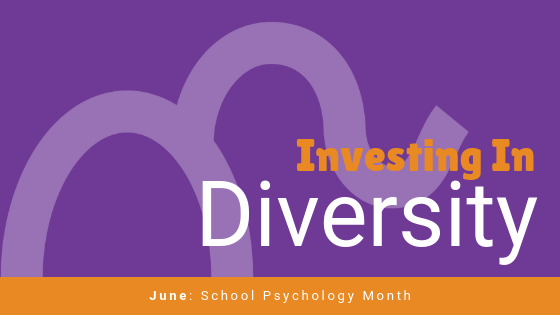There is a growing awareness in education that educators must address the growing social and emotional challenges our youth face in order to fully access academic curriculum. Unfortunately, we have persistent shortages and lack of racial and cultural diversity in the one profession that is specifically trained to meet this exact need. MindWorks Collaborative is proud to spotlight Dr. Byron McClure as our first #TalentedThursday Diversity Spotlight of June.

Dr. McClure is a phenomenal Black male school psychologist in DC Public Schools at Anacostia High School and the Founder of Big Five Tech. A proud graduate of Prince George’s County Public Schools, he turned down several athletic scholarships to focus on just being a student during his undergraduate career. His goal had always been to become a psychologist but his road to working in schools was one of chance! Now, Dr. McClure leverages his inter-sectional identity every day to pave the way for more young Black men to join the field as social justice advocates.
What Do You Do As a School Psychologist?
As a nationally certified school psychologist, Dr. McClure works directly within the educational system to help students with emotional, social, and academic challenges. He administers psychological assessments, functional behavior assessments, and developing behavior intervention plans. He has worked with children who have attention deficit disorders, emotional and conduct problems, executive functioning deficits, learning disabilities, autism, and social-emotional distress.
According to the National Association of School Psychologist, school psychologists are uniquely able to “provide direct support and interventions to students, consult with teachers, families, and other school-employed mental health professionals to improve support strategies, work with school administrators to improve school-wide practices and policies, and collaborate with community providers to coordinate needed services.” Dr. McClure agrees in theory but often felt he was set up to do nothing more than just administer evaluations and sit in meetings – which is not what he signed up to do.
Dr. McClure found ways to make a real impact in his profession by expanding the way he engaged with students and staff through his role. He volunteered to work as a PBIS coach and 504 facilitator for about six years. He leads presentations and consultations for schools, districts, and national conferences on a range of topics such as: clinically-based school climate, responsive and restorative school discipline, disproportionate discipline practices, and school-wide behavior expectations.

HOW DOES DR. McClure ADVANCE EQUITY IN His Work?
Dr. McClure states his true professional goal is to end the school to prison pipeline by transforming the way school psychologists work in schools and by engaging more Black and Brown youth in the field. He leverages his identity to influence changes because less than 2% of school psychologists are Black and less than a quarter of those are Black men. His social media headlines reads, “A black school psychologist advocating for youth who look like me. Put the work in til’ it works it out.” And put in the work, he has, as a researcher, practitioner, and entrepreneur.
In his current role at Anacostia SHS he advances educational equity by launching several initiatives including the restorative justice team, a leadership/social-emotional healing program for Black male students, and an initiative to revise the process for referring, evaluating, and disciplining students with disabilities. Dr. McClure has also advanced educational equity work through his doctoral dissertation, which was an investigation of the effectiveness of Collaborative for Academic, Social, and Emotional Learning (CASEL) SELect programs with minority students from high-poverty communities and his newly developed app, Big Five Technology.
The Big Five app was designed to help school-based teams answer five key questions about student behavior and school discipline:
- How often do referrals occur (per day, per month, per year)?
- What time/day do they most frequently occur (9am on Monday, 3pm on Wednesday, etc.)?
- Where do they occur (classroom, bathroom, hallway, etc.)?
- What type of problem behaviors occur (aggression, truancy, etc.)?
- Which students are referred the most and which adults do the most referrals (and for what behaviors?)
LEARN MORE ABOUT DR. McClure:

Name:
Byron McClure, EdD, NCSP
Title and Organization:
Founder/Owner of Big Five Tech; School Psychologist at Anacostia SHS in DC Public Schools
Education Background/Certification:
Hampton University – BS in Psychology; Abilene Christian University – MS/SSP in School Psychology; Indiana University of Pennsylvania – EdD in School Psychology; National Association of School Psychologists – National Certification in School Psychology (NCSP)
When did you start working in School Psychology?
I completed my school psychology internship in Charles County, MD in 2011 and then worked there for several years before moving to DC Public Schools in 2016.
Why did you choose to become an School Psychologist?
I originally went to college to become a clinical psychologist but ended up switching to school psychology after a chance meeting. I had just finished an assignment for one of my courses at Abilene Christian University where they had us researching the demographics of the clinical psychology workforce and the clients. While I knew my personal experience in my programs, through this assignment I learned the actual data on how few Black men were in the field and the low percentage of Black men that sought clinical psychological services. I was devastated. My whole objective in choosing my field was to work with communities that looked like me, had similar experiences. I walked out feeling hopeless about my potential for impact and my face must have looked stressed. This random white lady stopped me and asked if I was okay, I shared with her why I looked crazy. Come to find out she was the Director of the School Psychology Department. She explained that if my priority focus area was youth, particularly low-income youth of color, then my best bet was to switch my program to the school setting. She explained Special Education and disproportionality, and I was hooked. I switched programs immediately. Since I was technically a semester behind from switching, I had to work hard that next summer but I did it and was able to catch up and graduate on time. I pursued my doctorate and then started working in schools ever since.
Can you share a bit about what makes your job so rewarding?
As a single site school psychologist, I am one of the only people in the building whom has the specific healing-centered expertise needed to help teachers and administrators address the wide variety of academic and behavioral challenges stemming from our growing population of students impacted by extreme amounts of trauma. Despite having a new principal every year since I started in DCPS, I appreciate the investment each one has made in the Restorative Justice work we started. Their commitment to allow me to prioritize that work, even though we are technically down a full school psychologist position, is because they see the value of the larger impact we can have on every student in our building. Anacostia gets a bad rap but we have a great team of staff committed to doing the hard work of getting our students the supports they need. Its been hard changing adult mindsets around approaches to behavior but it is the type of change I have been most excited to watch.
Connect with Dr. McClure:
Twitter – @schoolpsychlife
Instagram – @bmcclure6 and @bigfivetech
Big Five – www.bigfivetech.com


Recent Comments